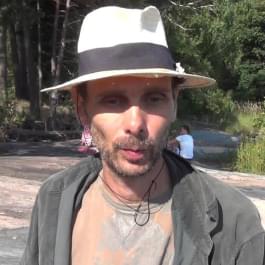
Psyop Cinema
Psyop Cinema is a podcast about the film industry and its intimate connections to mass manipulation, conspiracy, and the occult. Hosts Thomas Millary and Brett Carollo explore film from a deep politics perspective, demonstrating how the artistry of cinema combines with psychological and technological knowledge to engineer culture in subtle (and sometimes not-so-subtle) ways— making each of us the subject of the greatest mind control experiment in history.
Show episodes
Brett and Thomas have William Ramsey on to discuss The Manchurian Candidate, one of the most iconic cinematic depictions of mind control. We analyze the movie's abundant revelation of the method and misdirection. Other topics of discussion include the deep political context behind this film and similar movies and the s
With Wall Street (1987), Oliver Stone continues both his search for the figure of the "good father" and his consideration of the legacy of 1960s idealism, this time through a critique of 1980s economic greed. We discuss those themes and how the movie is largely a limited hangout, with Gordon Gekko functioning as a fall
Thomas and Steven return to True Detective, analyzing season 3, where the series goes full psyop. Despite the positive and ambiguous qualities of the first two seasons, this one is filled with MK-culture tropes, featuring a narrative that blends mind control subtext with anti-conspiratorial misdirection and audience di
A section analyzing David Bowie, from the 15th installment of Brett's Patreon-exclusive series on Monarch films. Full description of the episode below, along with our Patreon link, if you're interested in the full episode. In this 15th installment in the Monarch series, Brett delves into the Jim Henson-directed childr
Continuing our Oliver Stone series, we turn to Platoon (1986), the film that established Stone as a superstar director and inaugurated the most celebrated phase of his career, revolving around the ghosts of the 1960s. Brett discusses the reception of Platoon in terms of the cultural politics of New Hollywood and of the
In his latest appearance on William Ramsey Investigates, Brett discusses Part 2 of his Hollywood-NASA research report, which appeared this June in the second issue of Cultural Engineering Studies. After giving an overview of his groundbreaking research on the topic, Brett supports his conclusion that NASA’s partnership




